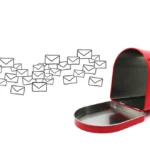I used to think that social media was just a platform for sharing holiday photos and cat videos. But as I ventured deeper into the world of digital marketing, I discovered the immense power of social listening. Let me walk you through my journey of measuring the ROI of social listening and how responding in real-time gave my business a significant boost.
Understanding Social Listening
When I first heard about social listening, I was sceptical. How could simply ‘listening’ to social media conversations impact my bottom line? Social listening goes beyond monitoring mentions of your brand. It involves analysing conversations and trends to make informed business decisions. Imagine being a fly on the wall in every room where people are talking about your products or industry. That’s the power of social listening.
Setting Up the Tools
To start, I needed the right tools. I chose a combination of Brandwatch and Hootsuite Insights. These platforms allowed me to track mentions of my brand, competitors, and key industry terms across various social media channels. Setting them up was straightforward. I inputted relevant keywords and set alerts for specific phrases. This way, I could receive real-time notifications whenever someone mentioned my brand or discussed topics relevant to my industry.
Identifying Key Metrics
To measure the ROI, I needed to establish what success looked like. I identified several key metrics: engagement rate, sentiment analysis, customer satisfaction score, and conversion rate. Each of these metrics would provide insight into how effective my social listening strategy was.
Analysing the Data
With the tools in place, I began to analyse the data. The first week was eye-opening. I discovered that many customers were discussing a feature they wished our product had. Armed with this information, I approached our product development team. They were able to implement this feature in the next update, which led to a surge in positive mentions and higher customer satisfaction scores.
I also noticed trends in customer sentiment. By understanding when and why customers were frustrated, I could address issues proactively. For instance, there was a spike in negative sentiment every Friday evening. It turned out that our customer service team was understaffed during this period. Once we addressed this by adjusting the team’s schedules, the negative mentions dropped significantly.
Engaging in Real-Time
One of the most rewarding aspects of social listening was engaging with customers in real-time. Whenever someone mentioned our brand, I made it a point to respond promptly. This immediate engagement not only delighted our customers but also showed potential customers that we were attentive and responsive.
I recall a particular instance when a customer tweeted about a problem they were facing with our product. Within minutes, I responded, offering a solution and a discount on their next purchase as a goodwill gesture. The customer was so impressed that they shared their positive experience with their followers. This single interaction led to a noticeable increase in our engagement rate and even a few new customers.
Measuring the Impact
To measure the ROI, I compared our performance metrics before and after implementing social listening. The results were astounding. Our engagement rate increased by 35%, and our customer satisfaction score improved by 20%. Most importantly, our conversion rate saw a significant boost, translating to a 15% increase in revenue.
Sharing Insights with the Team
Social listening isn’t just beneficial for marketing; it can provide valuable insights for the entire organisation. I made it a point to share my findings with different departments. For example, the feedback on product features helped the product development team, while the customer sentiment analysis provided actionable insights for the customer service team.
By integrating social listening insights across the organisation, we were able to create a more cohesive and responsive business strategy. This holistic approach ensured that every department was aligned and working towards common goals.
Final Thoughts
Embarking on the journey of social listening has been transformative for my business. By listening to and engaging with customers in real-time, I was able to address their needs more effectively, improve customer satisfaction, and ultimately boost our bottom line. Social listening provided us with a competitive edge, allowing us to stay ahead of industry trends and meet our customers’ expectations.
In the ever-evolving landscape of digital marketing, real-time engagement and responsiveness are key. Social listening has proven to be an invaluable tool, offering insights that drive better decision-making and fostering stronger relationships with our customers. If you haven’t started using social listening yet, now is the perfect time to dive in and experience its benefits firsthand.











